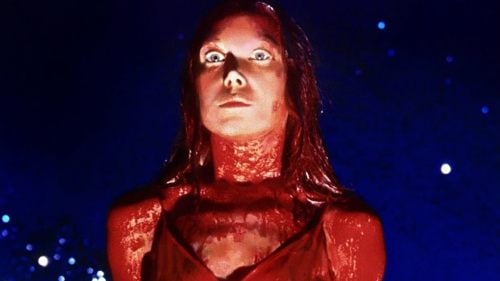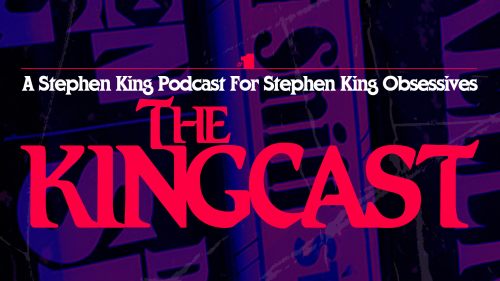With DOCTOR SLEEP, Stephen King Can’t Compete With Himself
With Doctor Sleep, Stephen King returns to a grown-up Danny Torrance, the young protagonist of his 1977 novel The Shining, arguably his best work to date (or at least his best that I’ve read so far on my long journey through his works). Now grown, Danny’s power -- or his shining -- has somewhat diminished, in part tampered down by years of alcohol abuse in an effort to suppress the demons that haunt him. If we learned anything from The Shining or even from real-life experience, it’s that trauma and addiction are cyclical, parasitic entities. They exist symbiotically, feeding off of one another between people or within the confines of our own weary souls, passed down from one generation to the next. The tragedy is that Dan Torrance becomes an alcoholic just like his father, who was an alcoholic like his father before him. I discussed these themes of alcoholism and the sad inevitability of succumbing to our heredity, particularly when we’re so keenly aware of and living in fear of it in my previous piece on The Shining.
It seemed inevitable that Danny Torrance, the victim of abuse at the hands of his alcoholic father who became possessed by the spirits of a demonic hotel and tormented his son, would grow up to become Dan Torrance, the alcoholic who drinks to forget the ghosts, to forget his father, and to dull the shining. It also seemed inevitable that the victim would become the victimizer, as when we meet Dan again as an adult, he’s waking up in a strange woman’s bed after a one night stand. After realizing he’s spent all his money on cocaine, he goes to take $50 out of the woman’s wallet, only to realize the toddler he didn’t know she had is staring at him. The kid reaches for the coke, thinking it’s candy, and the least Dan can do is put the stuff out of his reach. He takes the money and runs. Every addict has a bottom. This is Dan’s.
But Dan does quickly find redemption in a small New Hampshire town, using his powers to work in a hospice, where he helps escort the elderly over to whatever other side exists when their time comes. Meanwhile, a young girl named Abra is born nearby, and like Danny, she was also born with an exceptional gift, only her power makes Dan’s look like a party trick. But with the Overlook Hotel burned to the ground, Doctor Sleep needs an antagonist, and this one comes in the form of travelers who call themselves the True Knot, an enigmatic and eccentric supernatural group who torture kids like Abra and Danny at the height of their power, which they call “steam,” and then devour it. The True Knot are led by a woman named Rose, who wears a curiously tilted top hat, reflecting the carnival-esque nature of her morbid band of wanderers, who seem better suited to the realm of gothic Young Adult fiction.
Unfortunately, much of Doctor Sleep reads like it was written for a younger audience. If The Shining is at the college reading level, Doctor Sleep is King operating at a 7th grade reading level. This isn’t to say that Doctor Sleep is without merit -- King, who is personally acquainted with addiction and recovery and has often worked themes from “the program” into his material, does so more overtly here. That old saying “write what you know” is true, and at his best, King’s writing often feels confessional, no more so than when Dan is trying to maintain his sobriety and painfully -- and often -- recalling the moment he hit bottom.
What Doctor Sleep also has working in its favor is Dan’s companion protagonist in the young and startlingly bright Abra, whom you could easily see played by a young Chloe Moretz if this were a film made a few years ago. Abra is incredibly clever and brave, and also wonderfully multi-faceted. In her we see a young girl coming of age and coming of power, desperate to obscure her full potential from her parents and protect them, but fearless nonetheless and eager to fight off the True Knot. She’s the superhero version of Carrie, and a superhero who understands that with great power comes great responsibility. Sadly, where Abra is written so beautifully, her parents are one-dimensional, and less time is spent adding depth to their characters and histories. Where King was able to craft rich layers with his characters in The Shining in even just a few simple sentences, his writing style in Doctor Sleep is more preoccupied with accelerating the plot and keeping up the momentum, his focus drawn to those characters he finds more interesting, like Dan, Abra and her grandmother, and Rose. All other characters are ancillary and exist only to propel the plot forward when convenient. There are so many members of the True Knot that new names are carelessly tossed around in the third act as if we should just know them by now.
Perhaps the biggest issue with Doctor Sleep is that, as with all sequels, comparisons to the original are unavoidable. At least with film sequels, there’s sometimes a different creative team behind the scenes, and we can blame a lack of quality on their inability to “get” what made the original so wonderful. What’s King’s excuse? Doctor Sleep isn’t a bad story or even a poorly written book, but it lacks the prose that made The Shining so searing and poignant, that poetic style that some might call florid. Where every sentence is so deliberately crafted in The Shining that it reads like poetry with its own harrowing rhythm, Doctor Sleep is written in a much more simplistic style. A little too simplistic. Reading a story that takes place in the same world with the same protagonist, one expects a similar energy and tone, so it’s jarring to crack open Doctor Sleep and find a novel that’s speaking to you in a different language. The Shining felt compact and efficient, but each word was packed with intent and not a space was wasted. Doctor Sleep feels lax and loose in comparison, with King giving himself more space and time to wander around.
In the end, the True Knot’s goth-y YA presence is silly and the climax is yet another wacky “that’s it?” where the journey King took us on was at times more satisfying than the destination. But the story of Dan Torrance still resonates deeply, and what’s personal to King is personal to all of us because his story is achingly human. Knowing that trauma and addiction are cyclical and with the revelation that Dan still has family, the cycle can continue, and it likely will. We relive pain, whether on a loop in our minds as we recall our past through the passage of time, or by recreating it unwittingly in our desperate attempt to evade it. The only way out is through.



